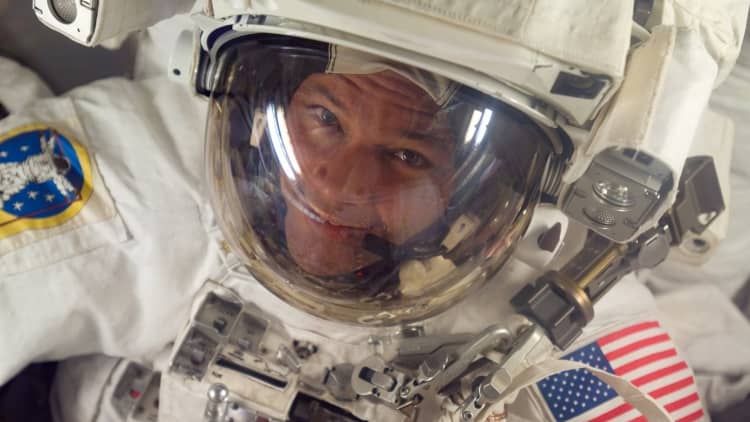Scott Parazynski has done it all. And that was before he decided to start a company.
A veteran astronaut who completed five shuttle flights with NASA, Parazynski is the first person to both walk in space and summit Mount Everest, the highest point on earth. He's also a commercial pilot, physician who was educated at Stanford and Harvard, and competed in the 1988 U.S. Olympic trials on the luge team.
In 2007, on his last NASA mission, STS-120, Parazynski and crewmates were tasked with completing the primary assembly of the International Space Station.
"That turned into this epic repair mission," Parazynski said. "We had to go out on a crazy spacewalk out at the very tip of the space station and stitch together a live solar panel. It was a really amazing team effort, people working around the clock for 72 hours to get me, along with my buddy Doug Wheelock, out on the end of this 90-foot long robotic arm where we cut out a frayed guidewire, and put in the repairs."
Upon returning, Parazynski said he wanted to build a company based on what he'd learned as an astronaut, from collaborating with colleagues around the world to training and designing things in virtual reality.
In 2016, Parazynski founded Fluidity Technologies in Houston. The company's first product, the FT Aviator, is a fancy joystick used to fly DJI drones as smoothly as possible with just one hand. Parazynski's ultimate goal is to adapt this controller technology to work with surgical robots in "tele-operations."
With tele-operations, a specialist in Houston can use a surgical robot to perform a complex procedure on a patient anywhere in the world and get the same kind of outcome as if the two people were in the same operating room. But this requires absolute precision.
Existing controllers, for both drones and surgical robots, look like something you'd use to play games on an Xbox. They require two hands, which can cause inadvertent motions, and they can take thousands of hours of training to use effectively.
Parazynski says the FT Aviator should be easier to master.
It will be available in the first quarter of 2019 for around $450. To get the flight controllers to market, Fluidity Technologies has raised funding through a campaign on Kickstarter and from undisclosed angel and venture investors.
After all of his wild adventures, the former astronaut says that running a tech start-up is the greatest challenge he's ever undertaken.
"It really is extraordinarily difficult," he said. "On Everest? There's a physical threat around you each and every day. You're cold and shivering, exhausted, hypoxic (low on oxygen) and that definitely is a real struggle each and every day. But those are understandable, measurable kinds of threats."
Running a company is more unpredictable.
"In a start-up, you just never know," he said. "There's a lot out there and it's both exciting and fun and also terrifying at times."




